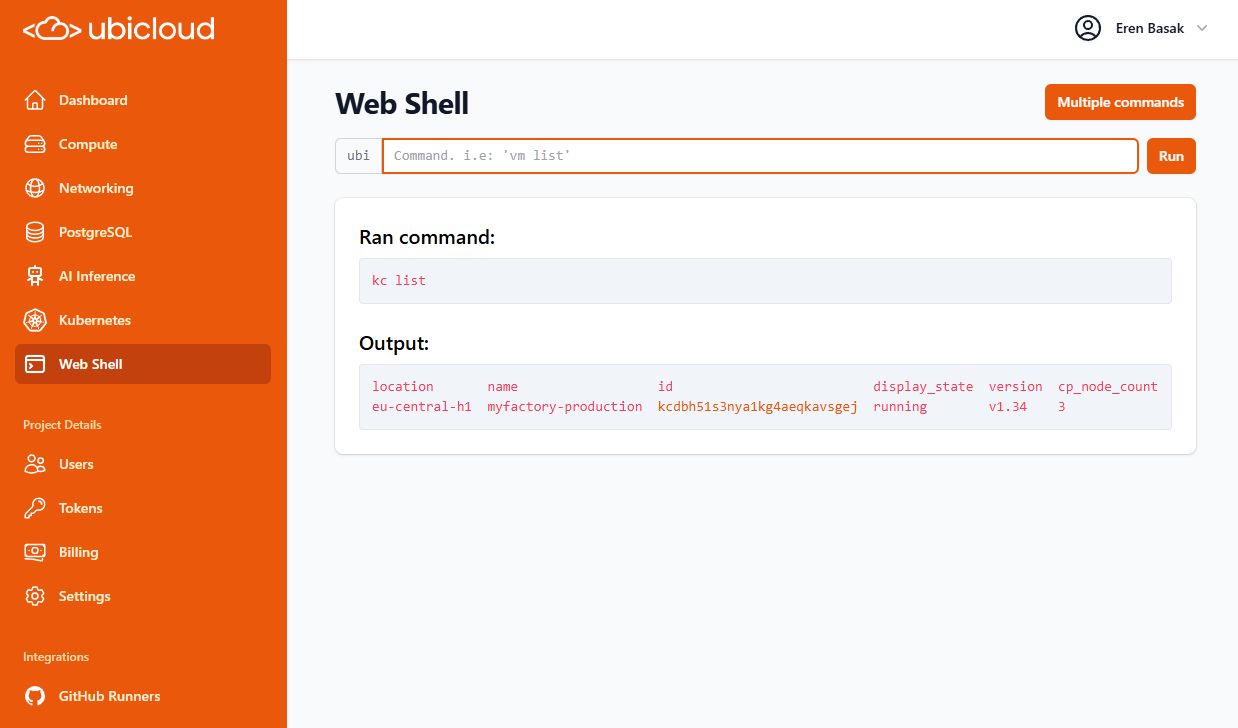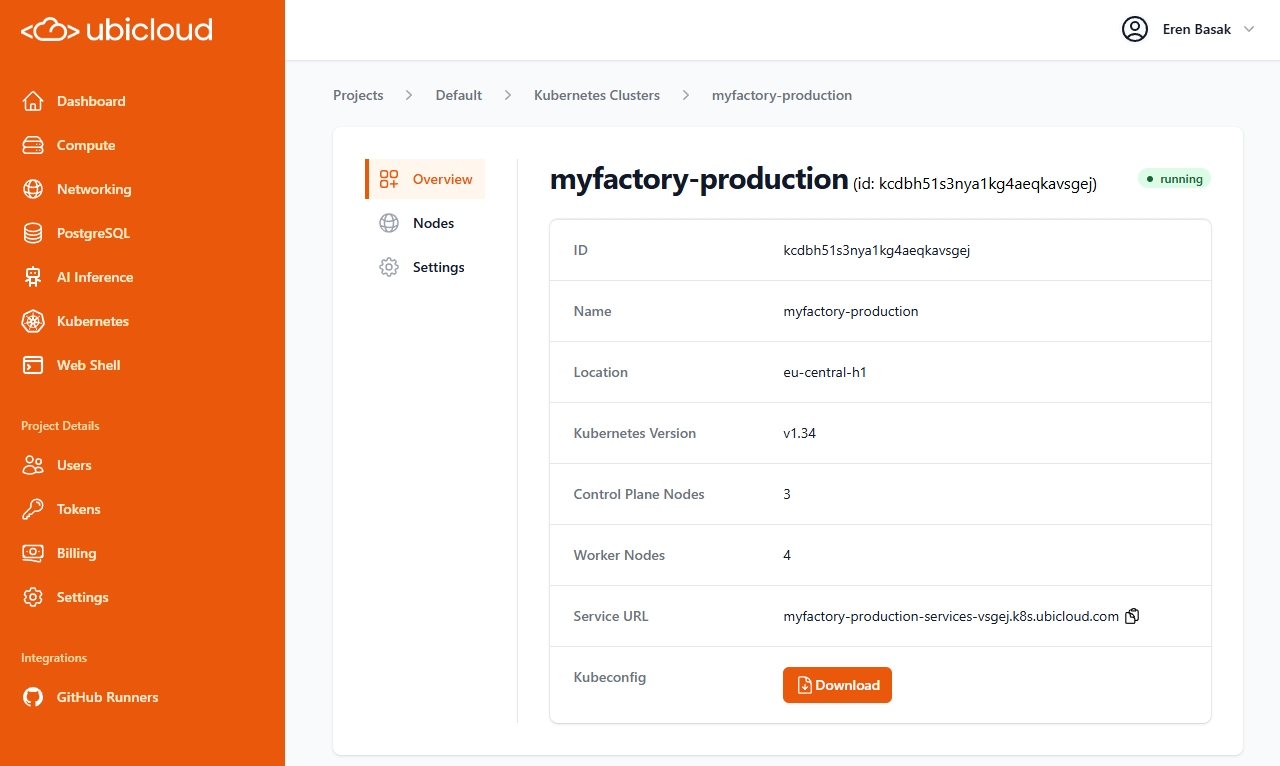Platform
Web Shell
You can now runubi CLI commands directly from your browser with the new Web Shell. This feature provides a convenient way to manage your resources without needing to install the CLI on your local machine. All commands are available, except for those that execute local programs (like psql or ssh). The Web Shell uses your existing web session for authentication, so there’s no need to create a personal access token.

Retouched UI for All Resources
The modern tabbed user interface, previously available only for PostgreSQL, has now been rolled out to all other resources: Firewalls, Kubernetes Clusters, Load Balancers, Private Subnets, and VMs. This creates a consistent and organized experience for managing settings, networking, and overview information across the platform.
Rename Resources via API and CLI
You can now rename existing resources using the API and CLI. The newrename command is available for Firewalls, Kubernetes clusters, Load Balancers, PostgreSQL instances, Private Subnets, and VMs, making it easier to manage your infrastructure as code.
Major CLI Usability Improvements
Theubi CLI is now more user-friendly and powerful for scripting. You can now use resource names instead of IDs for many commands (e.g., lb attach-vm my-load-balancer --vm-name my-vm), eliminating the need to parse output to get IDs. We have also fixed issues with interactive commands like psql and ssh and improved overall argument flexibility.
Managed PostgreSQL
Expanded CLI Functionality
Theubi pg command set has been significantly enhanced with support for new features. You can now manage read replicas (create-read-replica, promote-read-replica), modify database and PGBouncer configurations (show-config, add-config-entries), set maintenance windows, and manage firewall rules directly from the command line. For improved security, the CLI now uses the PGPASSWORD environment variable for command execution.
Tagging
You can now add resource tags to your PostgreSQL instances via the API to help with organization and cost management.Ubicloud Kubernetes
Kubernetes 1.34 Support
We now support Kubernetes v1.34 for new cluster deployments. When creating a new cluster, v1.34 will be available as an option. Support for v1.32 has been deprecated and removed.Dual-Stack Load Balancers for Services
The default load balancer created for Kubernetes services (type: LoadBalancer) now supports dual-stack (IPv4 and IPv6) networking, improving connectivity and future-proofing your applications.